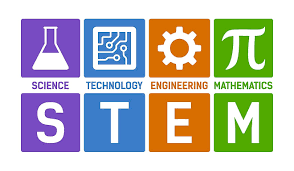STEM (Science, Technology, Engineering, and Mathematics) education has gained significant attention globally in recent years, and for a good reason. STEM curriculum offers numerous benefits to students in terms of academic, professional, and personal development. Implementing STEM education in Indian schools can help students develop skills that are essential for success in the 21st century. Here are some benefits of implementing a STEM curriculum in Indian schools:
- Enhancing Critical Thinking and Problem-Solving Skills: STEM education promotes critical thinking and problem-solving skills. Students learn to analyze problems, think creatively, and develop solutions using scientific principles. These skills are essential for success in the workplace and daily life.
- Developing Technological Skills: STEM education provides students with opportunities to learn about technology and how it can be used to solve problems. Students learn to use technology effectively, develop programming skills, and understand how technology can be applied in various fields.
- Fostering Innovation and Creativity: STEM education encourages innovation and creativity. Students learn to think outside the box, experiment, and come up with new and creative ideas. This creativity can help students develop solutions to complex problems and drive progress in various fields.
- Preparing Students for Future Careers: STEM education prepares students for future careers in fields such as engineering, computer science, medicine, and research. These fields are expected to experience significant growth in the coming years, and students who have a strong STEM background will have a competitive advantage.
- Promoting Collaboration and Teamwork: STEM education promotes collaboration and teamwork. Students learn to work in teams, share ideas, and develop solutions collaboratively. These skills are essential for success in the workplace and can help students become effective team members and leaders.
- Encouraging Environmental Awareness: STEM education promotes environmental awareness. Students learn about the impact of human activities on the environment and how science and technology can be used to address environmental issues. This awareness can help students become responsible and environmentally conscious citizens.
- Developing Lifelong Learning Skills: STEM education develops lifelong learning skills. Students learn to be curious, ask questions, and seek answers. These skills are essential for continuous learning and personal growth.
In conclusion, implementing a STEM curriculum in Indian schools offers numerous benefits to students in terms of academic, professional, and personal development. By enhancing critical thinking and problem-solving skills, developing technological skills, fostering innovation and creativity, preparing students for future careers, promoting collaboration and teamwork, encouraging environmental awareness, and developing lifelong learning skills, STEM education can help students become well-rounded individuals who can contribute positively to society. STEM education is a necessary step in preparing the next generation of Indian students for a rapidly changing and technologically advanced world.







